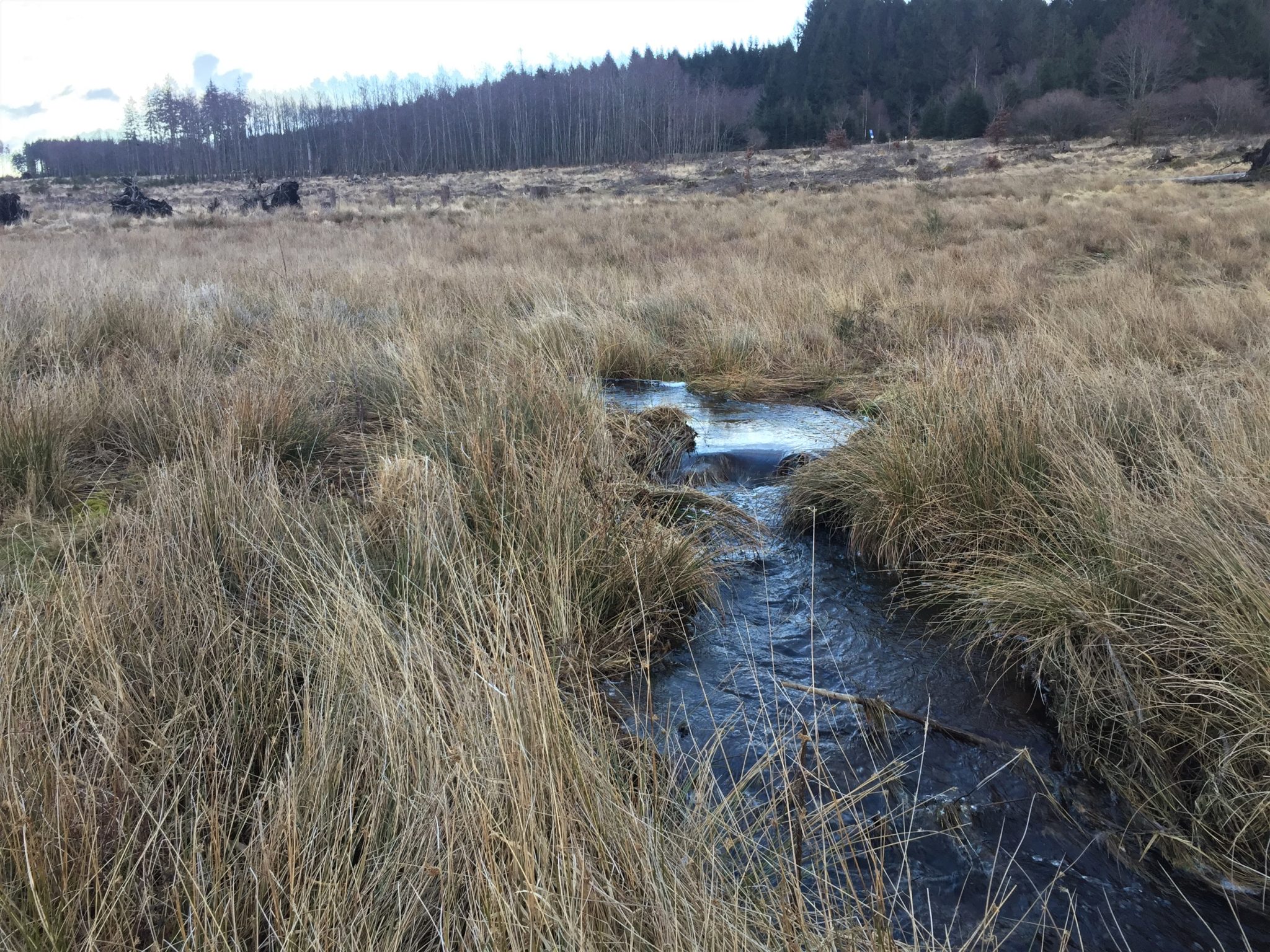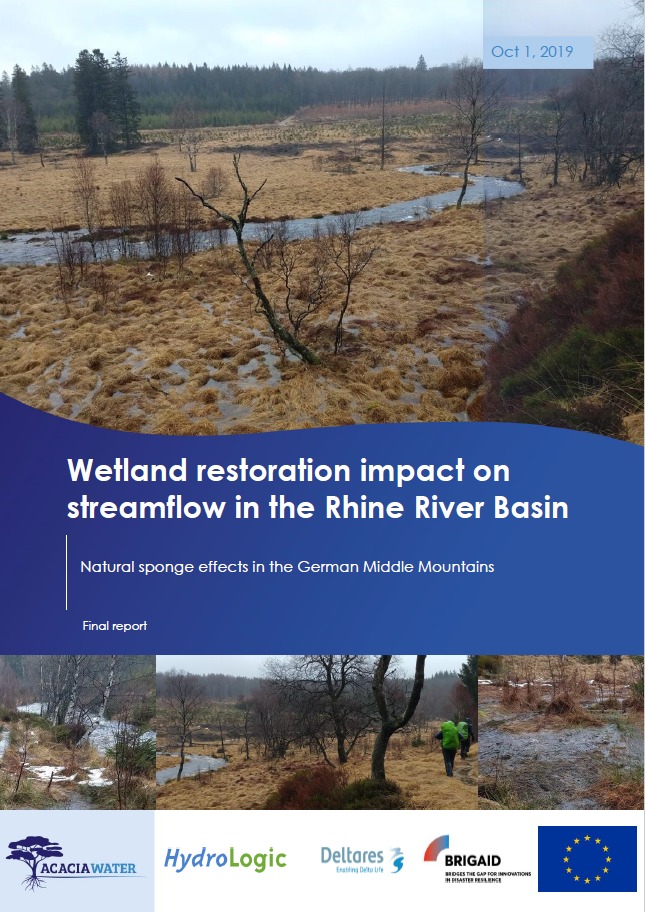
Wetland restoration impact on streamflow in the Rhine River Basin
Natural Water Retention through restoration of the ‘sponge’ function of currently drained soils in the middle-mountains of the Rhine basin is a locally applied nature-based solution to flood mitigation with potential impacts at basin scale. Water managers widely agree that blocking drainage to restore natural retention capacity increases hydrological travel time. In other words, by restoring natural drainage conditions in stream valleys water discharge into rivers slows down and the buildup of flood peaks is mitigated. After preliminary calculations, the magnitude of this effect remained unknown. A new study commissioned by Wetlands International, Bureau Stroming and WWF Netherlands demonstrates the scale of impact of ‘sponge restoration’ and the size of restored area needed to have a meaningful impact at Rhine river basin level.
Model calculations were made to show the impact of wetland restoration measures in the German Middle Mountains on micro- and macro-scales in the Rhine River Basin, focusing on winter peak flows. The SWAT+ model was used to calculate the hydrological effects of wetland restoration in three micro-catchments. The calculations show that peak flows in response to high winter precipitation events become attenuated after wetland restoration, occurring at lower frequencies than in the current situation. The delays in runoff caused by the wetland restoration cause an increase in median flow rates from the catchments, especially in summer and fall, as the recession flow following the peaks is higher.
On the macro-scale, the Deltares WFLOW model was used to simulate different scenarios of wetland restoration in the Mosel and Rhine basins. Three different scenarios were used in the simulations that described varying degrees of areal coverage of restored wetland. In all scenarios, restored wetlands on macro-scale have roughly the same effects on the streamflow as was seen on micro-scale, although the effects were relatively smaller. The results indicate that wetland restoration in the German Middle Mountains has the potential to decrease flooding risk in downstream areas.
Download the full report below.
This report is part of a project that has received funding from the European Union’s Horizon 2020 research and innovation programme under grant agreement No 700699.

